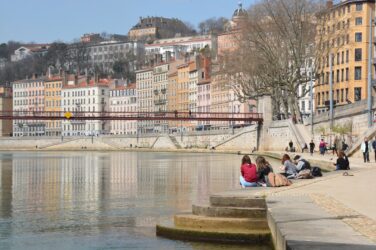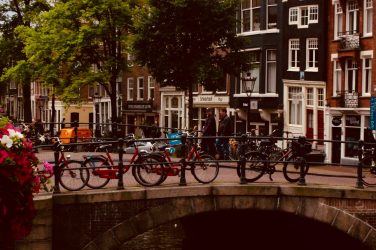There were so many powerful women at this year’s WOW Fest… Wow! (Pun intended)
Jude Kelly herself, who started WOW in 2010, never misses a beat. We were impressed by her because, even when moderating panels, her insight is always right on the money. Jude is always humble, self-aware and reflective. Our main take-away from Jude was one specifically aimed at white women. She says, picture this: the times you’ve been judged differently because you’re a woman, the times you haven’t gotten the same opportunities as your male counterpart, the times you’ve been rewarded less than him, the times your opinions are disregarded as your hormones, the times your male counterpart has gotten to a position of power faster than you even if you’re much more qualified for the position than he is. Now imagine this, imagine on top of that, you are black and the structural and societal bias against your gender is two-fold because of your race as well. Now you’ve gotten closer to life as a black woman! She also says “Your first instinct as a white woman will be defend yourself and your white privilege. Don’t. The only way we can begin to have valuable conversations about race and gender will be when we begin to listen to each other.”
Mariame Jamme, Senegalese Businesswoman in technology, was the first speaker who made me weep at WOW 2018. Mariame reminded me of my mum. Mariame and my mother both escaped African poverty and had difficult starts to life. Mariame was born in Senegal and my mother in Kenya. As the Director of Gender Issues at a UN organization, my mum advances feminist goals by empowering poor African girls by making sure they have access to an education. While Mariame works towards gender equality with her aim to empower 1 million girls globally to become coders by 2030. She’s been awarded as a GoalKeeper for advancing the UN’s Sustainable Development Goals and has been named on the Powerlist 2017 of Britain’s 100 most influential people of African and African Caribbean Heritage! Though there are some parallels between the two women – Mariame’s first decades of life are comparable to few. She was given away by her mum as a kid, grew up in an orphanage and then was trafficked as a young prostitute to Paris. Although she only began her education at 16, today her contribution in fighting issues like poverty, sexism and racism is more consequential than most. Mariame puts our #firstworldproblems into perspective. What a way to kick off WOW and what #girlpower!

The next talk that really spoke to us was Diversify, its panel was oozing in #blackexcellence.
Melanie Eusebe, Co-founder of the Black British Business Awards and Member of the WOW Committee, rolled into the room wearing a pair of white trainers, bright red lipstick and had big magnificent curls. Her Canadian accent almost sounded exotic in a room full of Brits. Her advice on how to diversify the workspace was straight to the point and pragmatic; “Be diverse with your purse!”. Her message is that diversity starts in our innermost circles. Yes, of course, let’s make sure big corporates are doing it, but let’s do it ourselves. What’s our unconscious bias when hiring are cleaners, gardeners, interns? If we only hire people of the same ethnicity, sex, nationality, religion, we need to be diversifying our own pool of candidates. But the most hashtag-able moment came from, Deborah Williams’s (Debs to friends), Chief Executive of the Creative Diversity Network. Battling a heavy hangover and without boring any of us with jargon and P.C. ness, she spoke in layman’s terms; “Treat diversity like sex, ok? You’ll be uncomfortable with it to begin with, you won’t be entirely sure what you’re doing, then before you know it you’ll be trying all kind of stuff and doing it the vanilla way will be way too boring”. Deborah was hilarious and had the whole crowd chuckling while confronting such an important topic #DiversityLikeSex. Then a message from all of the panel, there’s three main reasons to make sure your business is diverse: there is the moral impetus, the creative impetus and the business impetus. We need to appeal to all three to get our message across.
My Saturday started off with the Women for Grenfell talk. The air in the room was thick and the morale unlike any other room during the weekend. The subject matter was very different too. The women speaking had in a sense up,until the fire, been “ordinary” with regular jobs and lives but have been forced to be extraordinary when loosing their friends and family to Grenfell. Our first speaker Idil Hassan, Founder of Women For Grenfell, epitomizes the extraordinary. Jude Kelly, our moderator, tells us that Idil, first a quiet and humble woman, had never spoken in public before today. When Idil picks up the microphone her first words are “in the face of injustice silence is cruel”. We’ve all read about Grenfell on the papers and some of us heard Stormzy at the Brits ask Theresa May where the money for Grenfell was, but hearing the women who’d been at the frontlines and the mothers of the bereaved speak about the incident wasn’t quite the same.
So what did I learn? Lucy Masoud is a London Firefighter who was at the scene and provides us with the technical info. “The fire was preventable” Lucy explains, “there were a few moments leading up to the Grenfell Fire in which the government decided not to act and essentially sealed the fate of the residents of the building”. First, the government was meant to put sprinklers inside the building about a year before the fire and never did. Sprinklers would have been a game changer. Second, the tallest ladder that the London Fire Service had at its disposition was about half as high as the building (it only reached the 12th floor out of 24 floors) and London firefighters had to wait for a ladder to be transported from Surrey. Lucy, who’s worked in the Fire Service for over 20 years, wholeheartedly believes that the money that Westminster invests in its emergency services is abysmal. Exasperated she says, “we risk our lives every day to protect the public, but if the government doesn’t give us the tools we need to save people, we can’t do our job”. Third and worst of all, the cladding that covered the whole building was highly flammable and illegal. “The cladding that covered the building was pretty much petrol”.

On top of the pre-conditions of the fire, we have how the government has been dealing with Grenfell up until this point. Some of the people who died from jumping out of the flaming building to try and escape were classed as suicide cases so that no one could be held responsible for their deaths. Something else that has p***** the victims off is that Theresa May promised to rehouse everyone within three weeks of the fire and its now been nine months and many still haven’t been. Why did this happen in the borough of Kensington and Chelsea, the richest borough in one of the richest countries of the world? And what does Grenfell have to do with D&I? The panel agreed that the government ignored all the signs because it was social housing. Although money goes into upkeeping the prestigious Kensington and Chelsea buildings, to welcome tourists and London’s upper class, London’s poorest aren’t deemed worthy of receiving the same treatment.
We’re told that the UK is a democracy because poor people and immigrants are given affordable housing, but actually what the UN Human Rights Commission has found is that the standard of living of the Grenfell Tower was an infringement on human rights. Yvette Williams, Co-founder of Justice4Grenfell, who rightly was very emotional throughout the talk, interjected at one point to say that the systemic racism that social housing in London represents, aligns with the rise of British anti-immigration and islamophobia. Idil tells us not to forget that the heroes of that night were the Muslim, black and working class men that ran into the flaming building to save lives. So if Diversity means appreciating and respecting those with different genders, ethnicities, sexualities, views and religions to us and Inclusion means offering all of these people equal opportunities and chances at life, then Grenfell shows us how none of these principles were allowed to the fire’s victims.
My absolute fave talk was Code Switching: Survival Strategies for Black Women at Work. Every woman on the panel had a shocking story of “their downfall” at the workplace that was a result of their race, gender and religion. Lola Olufemi, is an academic at Cambridge Uni, demonised by the media for writing an essay that argued that Cambridge should ‘decolonise’ English literature and add more black writers. Debs (mentioned above) has had serious mental and physical health issues due to working in all white male institute, so much so that she left the corporate sector and now works for herself.
Yasmeen Abdel-Magied’s, a Muslim Sudanese-Australian Engineer, gained a high profile in Aus at young age. She founded the charity Youth Without Borders, was named the 2007 Young Australian Muslim of the Year, wrote a publication on growing up as a “brown Muslim girl”, and was appointed as a board member on Council for Australian-Arab Relations (CAAR). With a sense of humour for miles, quirkiness, and an American-Aus twang, Yas (can I call her that?) looks at us and says “guys it’s so dope to be here at WOW”. After controversies over some of Yas’s publications (one on cultural appropriation) and a Facebook post on Aznac day “LEST.WE.FORGET (Manus, Nauru, Syria, Palestine…)”;“Manus” and “Naura” referring to Muslim refugees in detention, the Aus Minister for Immigration used the media to crusade on Yas’s character assassination. The media ultimately got the majority of Australians believing that she was an unpatriotic, anti-Australian, Islamist.
She has us all laughing when she tells us about what it was like going home to a Sudanese father and telling him about the death threats she received on social media. Yas puts on an accent and tells us that her dad would say “well in Sudan no one uses Twitter they come and they kill you”.
Yas says that her career as an engineer was destroyed because of all of this and ultimately the situation got so bad that she left home and moved to London some months ago. Her views, that were unapologetically black, unapologetically female and unapologetically Muslim, were constantly under the crossfire. Yas looked at us with a smile and sarcastically says “I mean freedom of speech only counts if you’re a white man right?” Then again, a sombre demeanour, she finishes up by telling us about the struggles that come with her identity; “I always thought that I could be the Model Minority, if I was the best in my class and did everything perfectly, then I’d be treated the same as white people, but actually our equality is conditional on us towing the line”. Then with a smile on her face “And don’t even get me started on the struggles of finding a husband!” which has the crowd back in hysterics.
Cover photo courtesy: Unsplash





